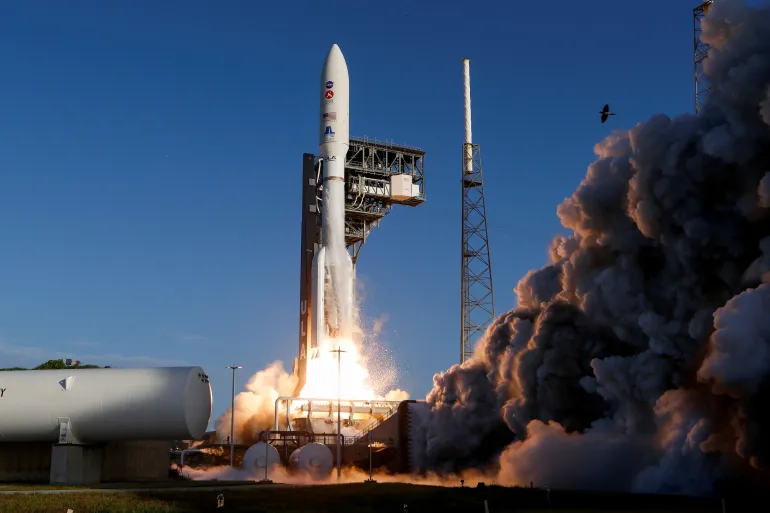A Russian rocket has successfully launched a series of satellites into orbit, including two from Iran, in a development highlighting the deepening cooperation between Moscow and Tehran. Russia’s Roscosmos space agency confirmed that the Soyuz-2.1 spacecraft lifted off as scheduled from the Vostochny Cosmodrome in eastern Russia, placing its payload into the designated orbit nine minutes post-launch.
The rocket carried two Russian Ionosfera-M satellites, designed to monitor space weather, along with 53 smaller satellites from various countries, including the Iranian Kowsar and Hodhod satellites. The Kowsar is a high-resolution imaging satellite, while the Hodhod serves communication purposes. This launch marks Iran’s first involvement from the private sector, with Kowsar produced by Omidfaza, which began its design in 2019. Kowsar is expected to last three years, and Hodhod is projected to operate for four years, according to Iran’s IRNA news agency.
Notably, Russia previously launched Iranian satellites, including the Earth observation satellite Khayyam in 2022 and the Pars-1 research satellite in February, which maps Iran’s terrain. The latest launch reflects Russia and Iran’s strengthening ties across multiple sectors amid criticism from Ukraine and Western nations, who allege Tehran has supplied drones for Russia’s use in Ukraine.
Plans for a “comprehensive strategic partnership” are underway, with an agreement expected during an upcoming visit to Russia by Iranian President Masoud Pezeshkian, though the date remains unconfirmed.
This launch follows a series of setbacks in Iran’s civilian space program, which faced five consecutive failures with its Simorgh rockets. Meanwhile, Iran’s Revolutionary Guard Corps has conducted successful military space launches, including from a Shahroud site that Israel allegedly targeted in an airstrike on October 26. Iranian authorities reported minimal damage from the attack.










